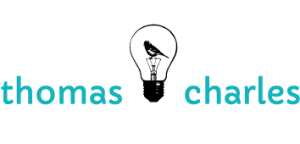Beckers, J., Dolmans, D., & van Merriënboer, J. (2016). e-Portfolios enhancing students’ self-directed learning: A systematic review of influencing factors. Australasian Journal of Educational Technology, 32(2).
Bennett, R. E. (2011). Formative assessment: a critical review. Assessment in Education: Principles, Policy & Practice, 18(1), 5-25. doi:10.1080/0969594X.2010.513678
Oostdam, R. J., Peetsma, T. T. D., & Blok, H. (2007). Het nieuwe leren in basisonderwijs en voortgezet onderwijs nader beschouwd: een verkenningsnotitie voor het Ministerie van Onderwijs, Cultuur en Wetenschap. Amsterdam: SCO-Kohnstamm Instituut.
Boekaerts, M., & Simons P. R. (1995). Leren en Instructie. Assen: Van Gorkum.
Brady, L. (2004). In Search of the Ideal Portfolio. Educational Practice and Theory, 26 (1), 51–60. doi: http://dx.doi.org/10.7459/ept/26.1.05
Bransford, J., Brown, A., & Cocking, R. (Eds.) (2000). How people Learn – Brain, Mind, Experience And School: Expanded Edition. Washington DC: National Academy Press.
Castelijns, J., & Kenter, B. (2003). De diepte in met leerlingportfolio’s: praktijkervaringen in het basisonderwijs. Amersfoort: CPS.
Castelijns, J., & Kenter, B. (2005). De diepte in met leerlingportfolio’s. Amersfoort: CPS
Castelijns, J., & Kenter, B. (2009). Leren met portfolio’s. Amersfoort: CPS
Castelijns, J., Kenter, B., & Janssen, J. (2001). De kracht van portfolio’s. Amersfoort: CPS.
Danielson, C., & Abrutyn, L. (1997). An introduction to using portfolios in the classroom. Alexandria, Virginia: Association for supervison and curriculum development.
Darling, L. F. (2001). Portfolio as practice: the narratives of emerging teachers. Teaching and Teacher Education, 17(1), 107–21.
Deci, E.L., & Ryan, R.M. (1985). Intrinsic motivation and self-determination in human behavior. New York: Plenum.
Deci, E.L., & Ryan, R.M. (2000). The “what” and “why” of goal pursuits: human needs and the self-determination of behavior. Psychological Inquiry, 11 (4), 227–268. doi:10.1207/S15327965PLI1104_01
Den Brok, P., Brekelmans, M., & Wubbels, T. (2004). Interpersonal teacher behaviour and student outcomes. School Effectiveness and School Improvement, 15, 407–422.
Duckworth, A. L. (2009). (Over and) beyond high-stakes testing. American Psychologist, 64(4), 279-280.
Easly, S. D., & Mitchell, K. (2009). De waarde van portfolio’s. Vertaald van Portfolio Matters (2003). Amersfoort: Kwintessens.
Freidus, H. (1998). Mentoring portfolio development. In LYONS, N. (Ed.) With portfolio in hand: validating the new teacher professionalism (New York, Teachers College Press).
Fullan, M. (2007). The new meaning of educational change. New York (NY): Teachers College Press.
Haanstra, F. (2004). Kunst- en leesdossiers. Gebruik en beoordeling in het onderwijs. Utrecht: Cultuurnetwerk Nederland.
Herman, J. L., & Winters, L. (1994). Portfolio research: a slim collection. Educational Leadership, 52(2), 48–55.
Hopkins, S. M. (2001). School improvement for real. Educational change and development. London: Routledge Falmer.
Johnson, R. S., Mims-Cox, J. S., & Doyle-Nichols, A. (2010). Developing portfolios in education. A guide to reflection, inquiry and assessment. California: SAGE Publications, Inc.
Jones, J. (2012). Portfolios as ‘learning companions’ for children and a means to support and assess language learning in the primary school. Education 3-13: International Journal of Primary, Elementary and Early Years Education, 40 (4), 401–416. doi:10.1080/03004279.2012.691374
Kemp, J., & Toperoff, D. (1998). Guidelines for portfolio assessment in teaching English. English Inspectorate, Ministry of Education. Retrieved from http://www.anglit.net/main/portfolio/default.html.
Kenter, B., Castelijns, J., & Leenders, Y. (2002). Werken met portfolio’s: inspirerend idee maar hoe gaat dat in de praktijk? Wereld van het jonge kind, 30(2).
Kim, Y., & Sensale Yazdian, L. (2014). Portfolio Assessment and Quality Teaching. Theory Into Practice, 53 (3), 220–227. doi:10.1080/00405841.2014.916965
Kostons, D., Donker, A. S., & Opdenakker, M.-C. (2014). Zelfgestuurd leren in de onderwijspraktijk. Een kennisbasis voor effectieve strategie-instructie. Groningen: GION onderwijs/onderzoek.
Marzano, R. J. (2008). Wat werkt in de klas? Middelburg: Basalt.
Niguidula, D. (2005). Documenting learning with digital portfolios. Educational leadership, 63(3), 44-47.
OECD (2005). Definition and selection of key competencies. Geraadpleegd op: http://www.oecd.org/pisa/35070367.pdf
Paulson, F. L., Paulson, P. R., & Meyer, C. A. (1991). What makes a portfolio a portfolio? Eight thoughtful guidelines will help educators encourage self-directed learning. Educational leadership, 60-63.
Ritzen, M., & Kösters, J. (2002). Mogelijke functies van een portfolio binnen een competentiegericht curriculum. Geraadpleegd op http://www.icto.ic.uva.nl/surf/nl_portfolio/Publicaties/downloads/ritzen_mogelijkefucties.pdf
Sanders, P. (2011). Toetsen op school. Arnhem: CITO.
Shute, V. J. (2008). Focus on formative feedback. Reviews of Educational Research, 78(1), 153-189.
Simons, P. R. J., Linden, J. L. van der & Duffy, T. (2000). New learning: three ways to learn in a new balance. In P. R. J. Simons, J.L. van der Linden & T. Duffy (Eds.) (2000). New Learning (pp. 1-18). Dordrecht: Kluwer Academic Publishers.
Smith, J., Brewer, D. M., & Heffner, T. (2003). Using portfolio assessments with young children who are at risk for school failure. Preventing school failure: Alternative Education for Children and Youth, 48(1), 38-40.
Van Kammen, D. (2002). Werken met portfolio in de onderbouw. Baarn: HB Uitgevers.
Van Schaik, V. & van der Veen, C. (2013). Meten of echt kijken? Stellingen voor een voortdurende onderwijspedagogische discussie over onderwijsopbrengsten. Geraadpleegd op http://www.chielvanderveen.com/meten-of-echt-kijken-stellingen-voor-een-voortdurende-onderwijspedagogische-discussie-over-onderwijsopbrengsten/
Van Tartwijk, J., Driessen E. , Van Der Vleuten, C., & Stokking, K. (2007). Factors Influencing the Successful Introduction of Portfolios. Quality in Higher Education, 13(1), 69-79, DOI: 10.1080/13538320701272813.
Volman, M. (2011). Kennis van betekenis. Betrokkenheid als kwaliteit van leerprocessen en leerresultaten (oratie). Amsterdam: Universiteit van Amsterdam.
Vygotsky, L.S. (1978). Mind in society. Cambridge: Harvard University Press.
Wilkerson, J. R., & Lang, W. S. (2003). Portfolios, the pied piper of teacher certification assessments: legal and psychometric issues. Education policy analysis archives, 11(45).
Wolf, K., (1991). The schoolteacher’s portfolio: issues in design, introduction and evaluation. Phi DeltaKappan, 73(10), 129–36.
Zimmerman, B.J. (1990). Self-regulated learning and academic achievement: An overview. Educational Psychologist, 25, 3-17. Doi: 10.1207/s15326985ep2501_2
Zimmerman, B. J. (2000). Self-efficacy: an essential motive to learn. Contemporary Educational Psychology, 25, 82-91. Doi: 10.1006/ceps.1999.1016
